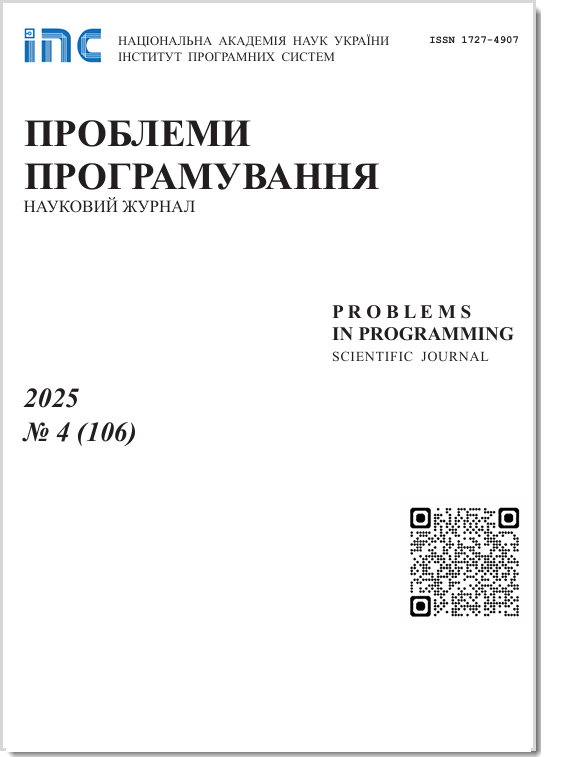Methods and Models for Employment of the Expert Analytical Knowledge in Organization Decision Making. Part II. The Ontological relations and the decisions field coherency analysis
Abstract
Some types of relations between the elements of the organization decisions system are formalized using the ontological model proposed in the previous part of the article. This model reflects both the normative knowledge and expert views. There are such the classes of relations as genetic, coordination (connection or resemblance) and opposing ones. The special class of clastering relations is determined. Eight types of such relations select the subsets of the decision field that represent risk issue for the actual decision or the eventual remedies for this risk. The main indexes of the decision field coherency are formalized and metrizied. The potentialities of the proposed formalizm using for the analytical support of the organization decision are considered.
Problems in programming 2016; 4: 66-80
Keywords
Full Text:
PDF (Русский)References
Uschold M. et al. The Enterprise Ontology. – AIAI_TR-1998. – In [Electronic Resource] 61 p.
Ilina E.P. "Methods and Models for Employment of the Expert Analytical Knowledge in Organization Decision Making. Part I. Decisions Knowledge Models" [In Russian] In: Problems in Programming. – 2016. – N 1. – P. 89–101.
Ilina E.P., Sinitsyn I.P., Yablokova T.L. "Designing principles of the Intelligent information technology for organization decisions" [In Russian] In: Problems in Programming. – 2015. – N 2. – P. 63–75.
Ilina E.P., Slabospitskaya O.A. "Forms, metrics and properties of the similarity relation between the concept in expert viewpoints ontologies" [In Russian] In: Problems in Programming. – 2005. – N 4. – P. 39–49.
Saati T.L. Method of hierarchy analysis.- Moskow: "Radio i sviaz", 2001. – 386 p. (In Russian).
DOI: https://doi.org/10.15407/pp2016.04.066
Refbacks
- There are currently no refbacks.









